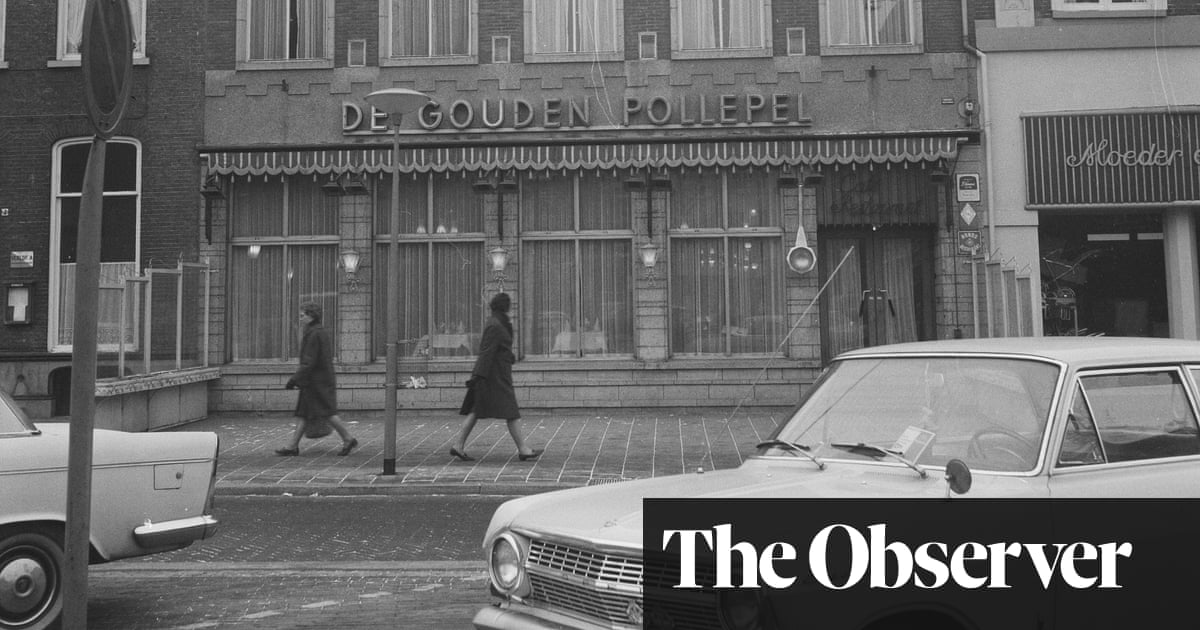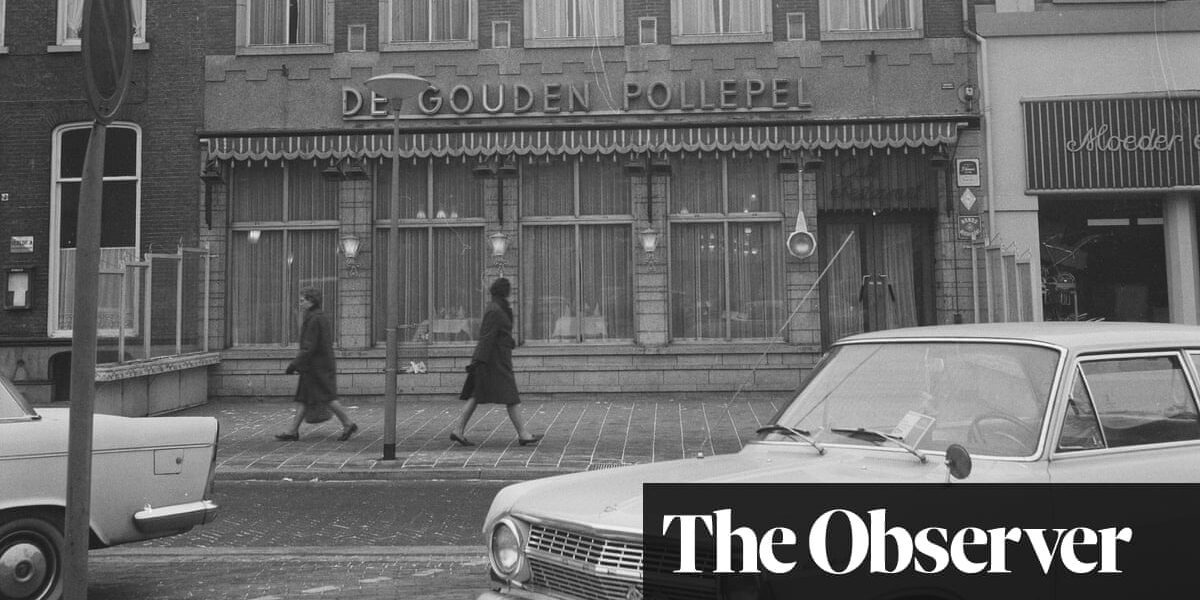
Isabel, the protagonist of Yael van der Wouden’s remarkable debut novel, has an excruciating habit, at moments of tension or distress, of pinching and twisting the skin on the back of her hand until it is raw and red. The repeated gesture sums up her plight as a figure seething with resentments and desires that she keeps, rigidly and violently, in check. Isabel lives in the house in which she grew up and in which her mother died, in a small Netherlandish town 15 years after the end of the second world war, obsessively cleaning and polishing the tableware and other objects that her mother loved while ruling tyrannically over the meek local girl who is her maid. When her debonair and womanising brother – who has been promised the house as his inheritance, making Isabel’s residence there tenuous and time-limited – leaves the country for several weeks, he brings his new girlfriend, the vivacious and flamboyant Eva, to live with Isabel, threatening to loosen or to sever the tight coils into which she has wound her existence.
after newsletter promotion
The stakes of Van der Wouden’s taut family drama slowly rise as it becomes clear that Isabel’s struggles to reckon with or move on from her mother’s death, and to find a way of being in the present, are a mirror and a symptom of a wider failure in the postwar Netherlands to reckon with and atone for the fate of Dutch Jews, offered up to the Nazis with little resistance, the gaps and the homes that they left behind seamlessly occupied and rarely relinquished to the few who returned. Van der Wouden’s superb earlier essay, On (Not) Reading Anne Frank, explored the ways in which that totemic, sentimentalised figure threatened to leave little space for her own explorations of her Dutch-Jewish identity; here she explores not the deportations and the mass murders but the quieter forgettings and self-justifications that came in their aftermath. “If they cared about it, they would have come back for it,” says one character of a Jewish family robbed of their home. “No. They’re gone. They’re gone or they don’t care. So many are gone.” Beneath such platitudes guilt lies buried.
With considerable bravery, Van der Wouden weaves this story of historical reckoning (or its avoidance) with an account of Isabel’s individual and sexual awakening, her movement away from being able to experience desire only as “a wrench in the routine and a distraction. It was a heavy blanket weighing her down in the night, it was the drag of honey into lungs.” The middle chapters of the novel contain a series of intense and brilliantly written sex scenes, unafraid of the sneering faux-worldliness that often greets attempts to write about sex even now that the Literary Review’s Bad Sex award has been suspended. Van der Wouden’s style both describes and takes on something of her protagonist’s tight self-control: “Isabel could see herself from the dresser mirror: face red, mouth like a violence.” This same style, brought to the moving awkwardness of intertwined human bodies, brings a wonderful power and precision. (Amusingly, the author ends her acknowledgments, after thanking her family for their inspiration and support, by adding: “Thank you all for not talking to me about chapter 10, you’re very respectful people.”)
For a novel that is so unsparing in its dissection of the lies that individuals, families, and nations tell themselves, The Safekeep has a surprisingly upbeat ending, ultimately suggesting a confidence that more hopeful futures can emerge from the bonds that individuals form with one another. I realised in finishing it that my desire for something more was partly a futile desire for poetic justice that the novel had deliberately provoked – a desire for some kind of comeuppance for those who chose to erase, to forget, and to forget their own erasures. Van der Wouden’s point is that such acts are painful and routine. Moments of individual connection, when the painful twisting of one’s own skin becomes a reaching outward, feel fragile and inadequate, and all that one can hope for.
Source: theguardian.com



